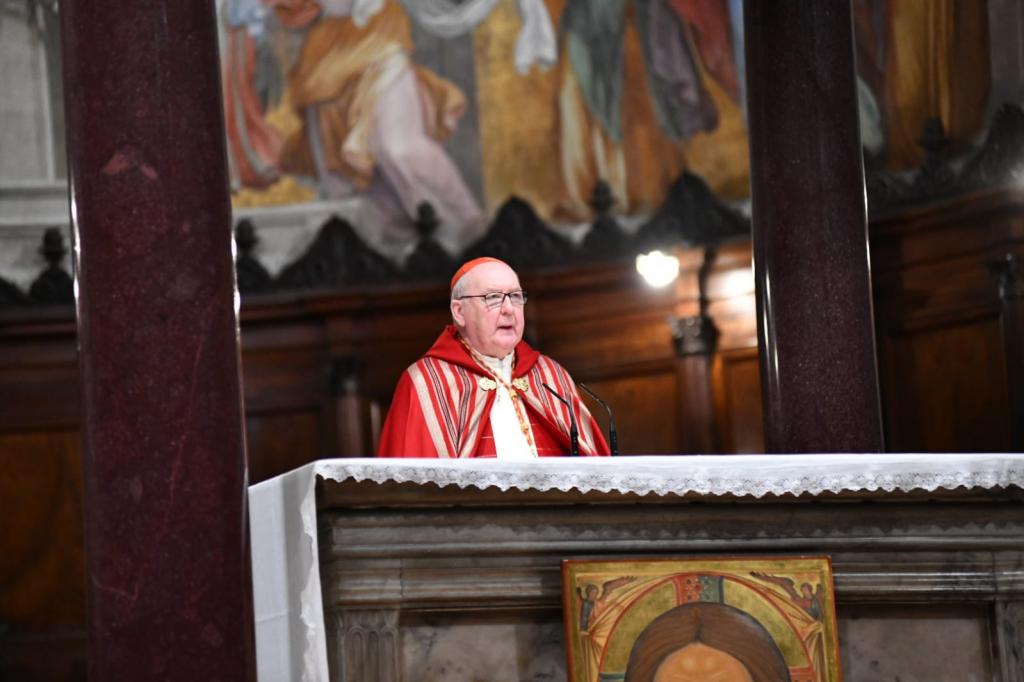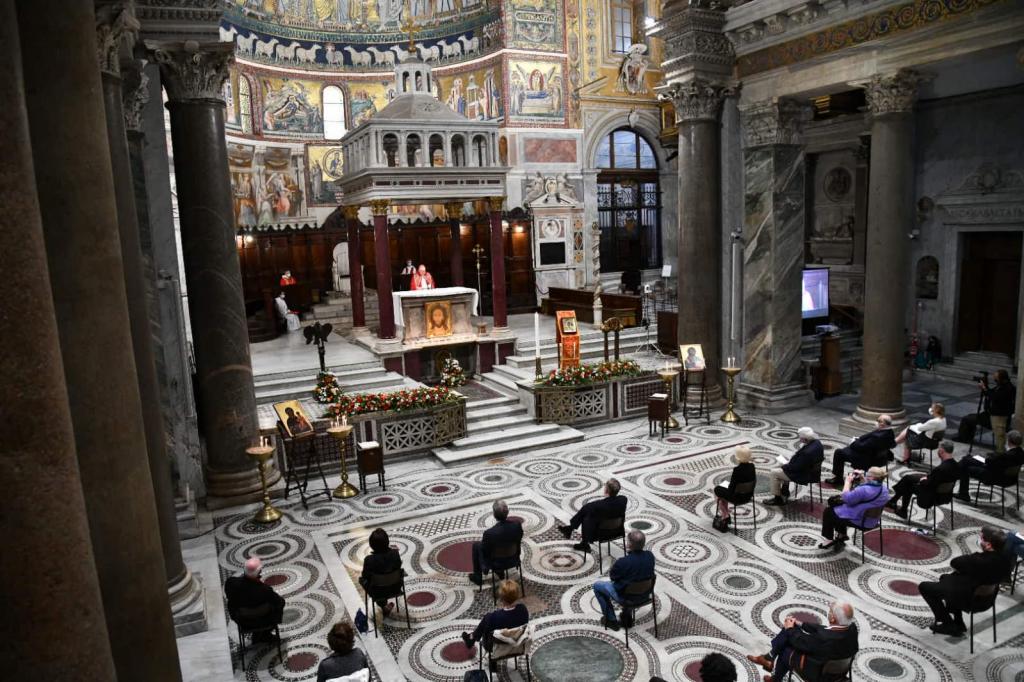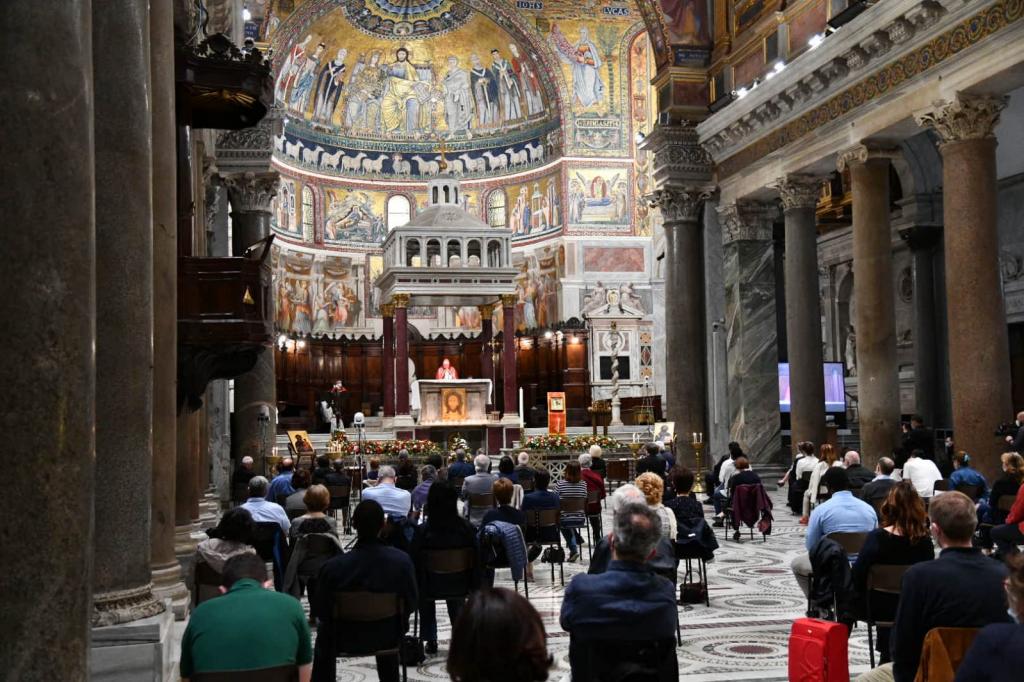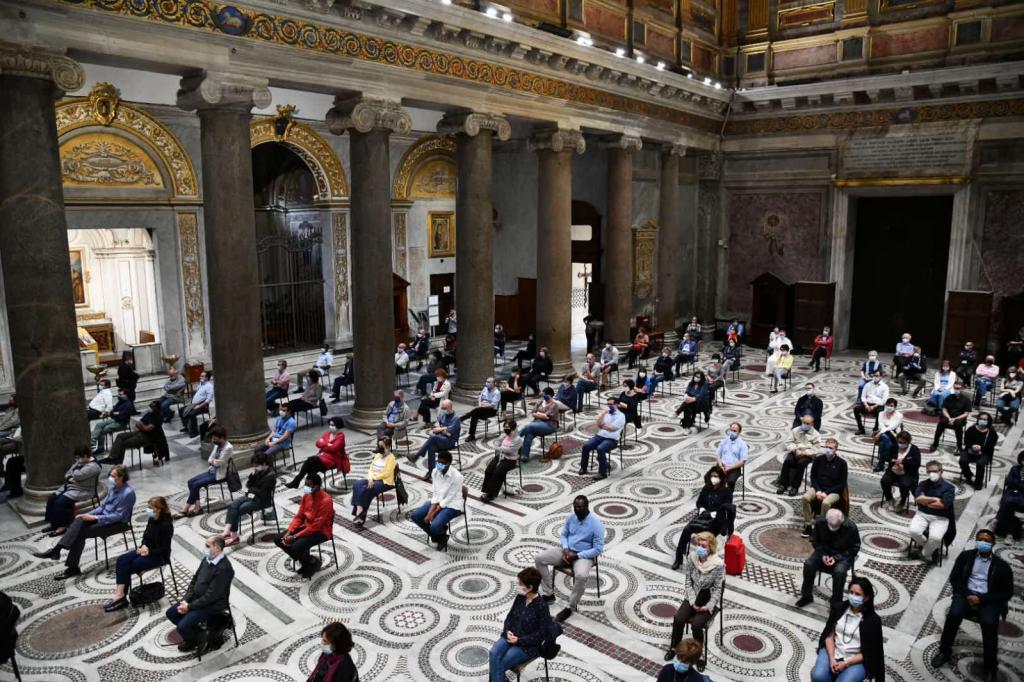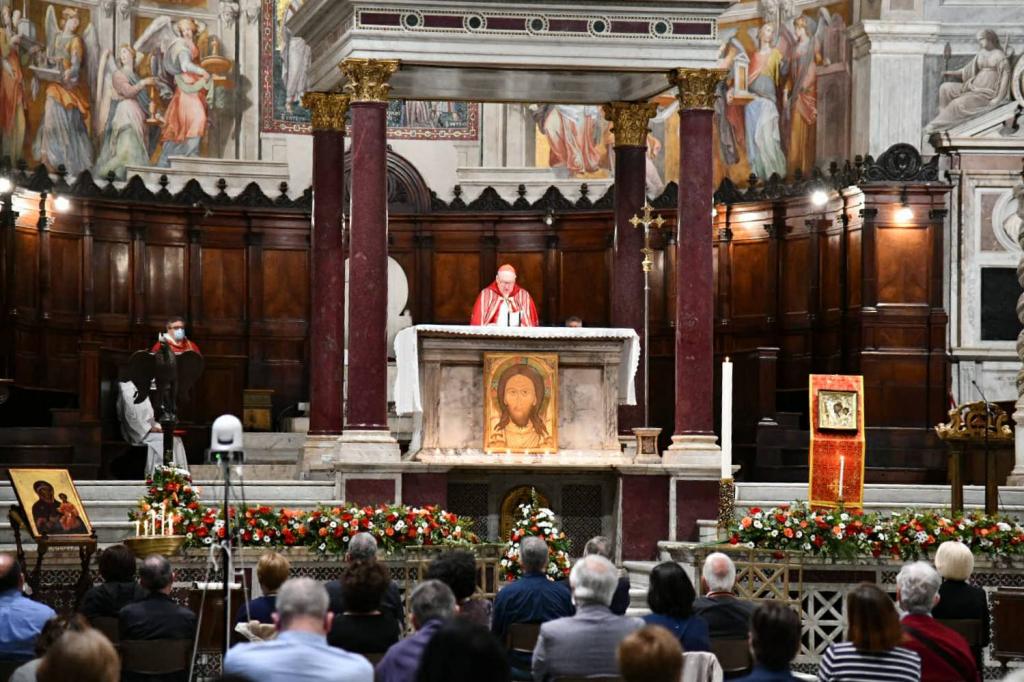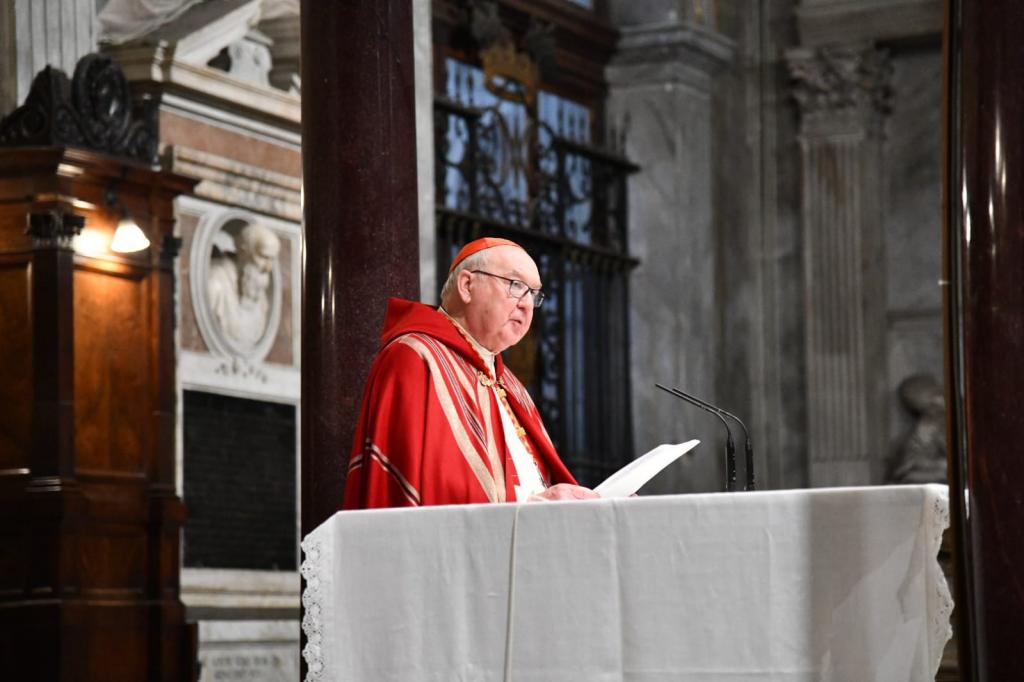MEDITATION ON JO 14, 23-27
Rome - Basilica of S. Maria in Trastevere
Dear brothers and sisters,
these days, the whole world is watching with apprehension the wave of protests that is going through many cities in the United States of America following the unjust death of George Floyd. Especially for us American citizens, it is a source of great sadness to see how discrimination, prejudice and hatred on racial grounds still persist in our country.
We are always inclined to think that after long years of fighting for civil rights and racial equality, certain injustices and violence of the past could never happen again. But we see with sorrow that this is not the case. Social peace and fraternal coexistence among all citizens can never be taken for granted. They are not a given once and for all. The great social movements of the '60s and '70s for civil rights and against racial discrimination have undoubtedly left a deep mark on the civil conscience of the nation, but they have not definitively solved all the problems. In these days, we realize that peaceful coexistence and mutual acceptance are precious goods that must always be promoted. They do not automatically derive from words spoken in the past and now preserved in writing in some historical discourse, but they are the fruit of profound attitudes that must dwell in the hearts of men and women. For this reason each new generation must be helped to have a "fraternal heart". Social fraternity must always be built anew, it is never reached in a stable and definitive way, because the human heart can always close itself in its selfishness and return to being polluted by sin, thus causing new injustices, new violence, new oppressions.
This is precisely the area in which we Christians can make our precious contribution. We Christians must always proclaim and bear witness with our lives to the newness that the Gospel of Christ has brought on earth. A novelty that is never taken for granted and that must always be welcomed again by every new generation that appears on earth. We have heard the beautiful words of the Gospel that speaks of a "dwelling place" of the Father and the Son in all those who love Jesus, that speaks of the Holy Spirit Paraclete given to believers, and that speaks of the peace that Jesus gives us as the most beautiful fruit of his death and resurrection. All this cannot remain a theory, it must have concrete consequences in life.
If in every baptized person, if in every Christian, there really is a special "dwelling place" of God, his or her heart will be transformed. In them there cannot be any more feelings of hatred and contempt towards anyone. And if the Holy Spirit Paraclete truly dwells in the hearts of Christians, they will look at every other human being "with the eyes of God", with the same respect and compassion with which God sees every man and every woman on earth. The Holy Spirit, in fact, as the Holy Father reminded us at Pentecost, is the true "principle of unity ... He reminds us that first of all we are God's beloved children; all equal in this, and all different". And if the peace of Christ is truly present in the hearts of believers there can be no more room for rivalry, for the denial of the dignity of others and for the oppression of others. This must be the real way of life of Christians and in this way it must become a proclamation addressed to all, that it is possible to achieve a reconciled and fraternal humanity.
Our nation, since its birth, has been multicultural, multi-ethnic, multi-religious. The foundations on which it was built were the equality of all people, the inalienable rights to life and freedom granted by the Creator himself to all people, tolerance, peaceful coexistence, equal opportunities for prosperity and well-being for all. These ideals are inscribed in the DNA of the United States of America and are part of its founding documents. But these principles, in the final analysis, are nothing more than the translation of Christianity into the language of civil law. That is why we Christians, every time we make Jesus' teaching known, are helping all our fellow citizens to return to the authentic ideals of our nation, its constitution and its laws.
The command that Jesus gave to his disciples is: "Love one another as I have loved you" (Jn 15:12,17). Jesus made no distinction between men and women, between Jews and Samaritans, between simple fishermen and members of the Sanhedrin, between poor shepherds and rich publicans. Jesus addressed his message of salvation and mercy to all without excluding anyone. This simple fact should be a strong appeal to all of us who, instead, often make distinctions based on social class, economic status, race, political affiliation.
Unfortunately, even among us Christians a distorted way of thinking can infiltrate, which leads us to identify with only one side, distancing ourselves from those who belong to the other side: wealthy people against poor people, intellectuals against uncultured people, progressives against conservatives, whites against blacks, and in doing so we completely lose sight of the universal dimension of Christ's message or even end up identifying our Christian faith with the ideological vision of the side we have embraced. We see, instead, how Saint Paul shows that he has fully accepted the spirit of Christ when he says: "Those of you who have been baptized in Christ have clothed yourselves with Christ. There is no Jew nor Greek; there is no slave nor free; there is no male and female, for all of you are one in Christ Jesus" (Gal 3:27-28). Returning to this purity of the Gospel becomes the best way of promoting the social good, avoiding partial and ideological visions.
For us Christians, it is also dutiful to insist that the means must always be in harmony with the end. Jesus spoke of poverty by living poorly, he spoke of the dignity of human love by living chastely, he spoke of the Father's mercy having mercy on all, even on his enemies. In this sense, one cannot hope to promote social peace through violence, one cannot overcome injustice by committing injustices and crimes even more serious than those one wishes to denounce. We Christians, then, must always urge all people of good will to unite their efforts to build together something that remains as a lasting good for all, fleeing from the temptation to irrationally destroy what exists and to give vent blindly to their anger and frustration. A culture of respect, a sense of universal brotherhood, worthy living conditions, just laws are goods that remain. Offensive words and gestures of contempt, looting and violence lead to nothing good for the future. For this reason we Christians must not hide and fear, on the contrary, precisely in these delicate moments of social tension we must be present to address to the true and lasting good the just desire for equality, respect and justice that is present in the hearts of so many men and women.
As the Holy Father recalled in his last Wednesday Audience: "we cannot tolerate or close our eyes to any kind of racism or exclusion and claim to defend the sacredness of every human life. At the same time we must recognize that "the violence of recent nights is self-destructive and self-destructive. Nothing is gained by violence and much is lost" (Audience of June 3, 2020).
Dear brothers and sisters, when the Church makes the words of the Gospel resound, she wants to be faithful to Jesus, she does not want to take one side or one category against another, she does not want to make political propaganda or proselytize for herself, but she simply wants to help society to promote the common good and to create bonds of authentic brotherhood among men and women.
We ask the Lord to look upon all innocent victims who have died because of injustice and racial discrimination, and may their spilled blood help our beloved nation to build a truly peaceful and fraternal society.
Amen.














